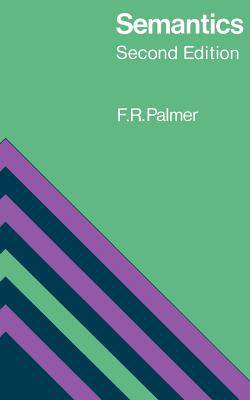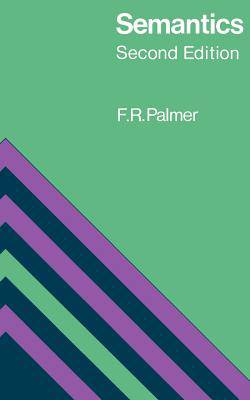
- Afhalen na 1 uur in een winkel met voorraad
- Gratis thuislevering in België vanaf € 30
- Ruim aanbod met 7 miljoen producten
- Afhalen na 1 uur in een winkel met voorraad
- Gratis thuislevering in België vanaf € 30
- Ruim aanbod met 7 miljoen producten
Zoeken
Omschrijving
When the first edition of Semantics appeared in 1976, the developments in this aspect of language study were exciting interest not only among linguists, but among philosophers, psychologists and logicians. Professor Palmer's straightforward and comprehensive book was immediately welcomed as one of the best introductions to the subject. Interest in Semantics has been further stimulated recently by a number of significant, and often contriversial, theoretical advances; and the publication of this second edition has enabled Professor Palmer to bring his survey thoroughly up to date. There is also an important new chapter on 'Semantics and logic', showing clearly and simply the influence that logical models have had on the study of meaning. Professor Palmer always illustrates his argument with helpful examples, and his non-technical explanations will be readily intelligible to the interested layman as well as to beginning students of language and linguistics.
Specificaties
Betrokkenen
- Auteur(s):
- Uitgeverij:
Inhoud
- Aantal bladzijden:
- 232
- Taal:
- Engels
Eigenschappen
- Productcode (EAN):
- 9780521283762
- Verschijningsdatum:
- 13/08/1981
- Uitvoering:
- Paperback
- Formaat:
- Trade paperback (VS)
- Afmetingen:
- 129 mm x 198 mm
- Gewicht:
- 263 g

Alleen bij Standaard Boekhandel
+ 270 punten op je klantenkaart van Standaard Boekhandel
Beoordelingen
We publiceren alleen reviews die voldoen aan de voorwaarden voor reviews. Bekijk onze voorwaarden voor reviews.








